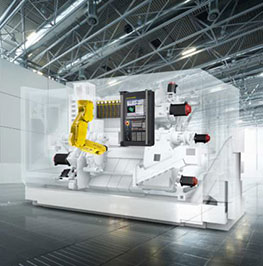

Aug . 07, 2024 16:40 Back to list
The Importance and Process of Aluminium Recycling Plants
Aluminium is one of the most versatile and widely used metals in the world, found in everything from beverage cans to airplane parts. Its lightweight, strength, and resistance to corrosion make it a popular choice in various industries. However, with the increasing demand for aluminium comes a pressing need for sustainable management of its resources. This is where aluminium recycling plants play a crucial role.
Aluminium recycling is a vital cog in the wheel of sustainability. The extraction of new aluminium from bauxite ore is an energy-intensive process that consumes significant amounts of electricity and emits large quantities of greenhouse gases. In contrast, recycling aluminium requires only about 5% of the energy needed for primary production. This means that recycling not only conserves energy and raw materials but also significantly reduces the carbon footprint associated with aluminium production.
The process of recycling aluminium begins with the collection of scrap aluminium. This can come from various sources such as used beverage cans, old vehicles, construction materials, and industrial scraps. Once collected, these materials are transported to recycling plants, where they undergo a thorough sorting process. This initial sorting is crucial to ensure that only aluminium is processed, as the presence of other materials can contaminate the final product.
After sorting, the aluminium scrap is cleaned to remove any impurities such as labels, paints, and other contaminants. This is typically done through a combination of mechanical processes and chemical treatments. Once cleaned, the aluminium is shredded into smaller pieces, making it easier to handle and process.

The next step involves melting the shredded aluminium in large furnaces. This is where the energy efficiency of recycling becomes particularly evident. The melting process requires significantly less energy than extracting and purifying aluminium from ore. After melting, the liquid aluminium is poured into molds to create ingots, which can be cooled and hardened. These ingots can then be remelted and reformed into new products.
But the benefits of aluminium recycling extend beyond just energy savings. The process significantly reduces landfill waste, alleviating pressure on landfills and reducing the associated environmental impacts. Furthermore, recycling aluminium conserves natural resources, as it eliminates the need for mining bauxite and processing it into primary aluminium. This conserves habitats and reduces the ecological footprint of aluminium production.
In recent years, aluminium recycling plants have embraced innovative technologies to enhance their efficiency and sustainability
. Advanced sorting technologies, such as AI and automated systems, have improved the accuracy of material identification and sorting, ensuring higher purity levels in the recycled aluminium. Additionally, energy-efficient furnaces and waste heat recovery systems have started to gain traction, further reducing the overall energy consumption and environmental impact of recycling operations.The global push towards sustainability and circular economy practices has also spurred investments in aluminium recycling plants. Governments and businesses are recognizing the value of recycling as a pathway to reduce waste, lower emissions, and preserve the environment for future generations. Many companies are now setting targets for using recycled aluminium in their products, highlighting a growing commitment to sustainability.
In conclusion, aluminium recycling plants are essential for reducing environmental impacts, conserving energy and materials, and supporting sustainable development. As global demand for aluminium continues to rise, the importance of efficient and effective recycling processes will only become more pronounced. By investing in advanced recycling technologies and practices, we can create a more sustainable future that benefits both the economy and the planet.
Latest news
Troubleshooting Common Eddy Separator Problems
NewsJul.04,2025
The Role of Metal Recycling Plants in Circular Economy
NewsJul.04,2025
The Impact of Recycling Line Pickers on Waste Management Costs
NewsJul.04,2025
Safety Features Every Metal Shredder Should Have
NewsJul.04,2025
How Industrial Shredders Improve Waste Management Systems
NewsJul.04,2025
How Cable Granulators Contribute to Sustainable Recycling
NewsJul.04,2025